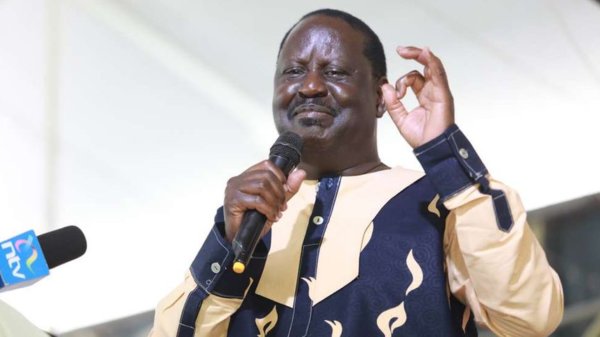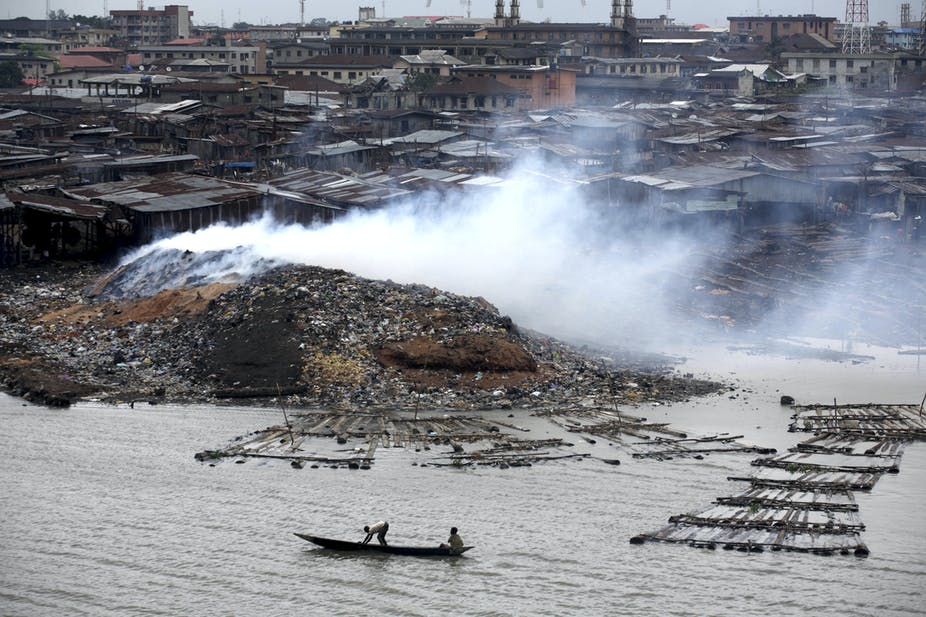KDRTV NEWS NAIROBI-Faced with global environmental challenges as it transforms economically, Africa now wants to have its own data to assist in addressing air and ecosystem polluters.
The programme under the umbrella of Africa Integrated Assessment of Air Pollution and Climate Change is being spearheaded by Climate and Clean Air Coalition (CCAC) together with African Union Commission (AUC), UN Environment Programme (UNEP) and the Stockholm Environment Institute (SEI).
The initiative, in line with the World Environment Day theme for this year – “Restoring our ecosystems together” – is the first of its kind in Africa.
It will inform decision making for the implementation of sustainable economic and social development in Africa, as well as highlight solutions and benefits accrued from improved air quality; to health, agriculture, environment, forestry, and subsequently the potential to limit climate change and promote adaptation.
The assessment will bolster effective continental actions that can drive key development goals, provide clean air for its people and help the global fight against climate change and ecosystem degradation.
It will also promote capacity development and action geared towards reducing emissions from key sectors of the economy such as industries. While development is a priority for Africa to achieve the “Africa we want” as outlined in the African Union’s Agenda 2063, specialists say this does not have to be at the expense of the environment or people’s health.
“This assessment process is important because it identifies development priorities and actions to reduce high levels of air pollution over the next decade while addressing climate forcing emissions in line with global commitments and the Paris Agreement,” says Helena Molin Valdes, former head of the CCAC Secretariat.
The big challenges standing in the way of Africa’s air pollution and ecosystem intervention are the lack of data on the emissions causing air pollution and climate change, and inadequate capacity for enforcing and enabling compliance with air pollution management policies, regulations and standards. Countries are in need of data that can enable their governments plan policies to reduce air pollution and deliver national development priorities and climate goals.
The assessment, therefore, aims at filling these gaps and increasing local knowledge and institutional capacity so that governments can integrate and implement air pollution and climate change policies in national development plans in an integrated manner.
‘The African Union Commission will support the implementation of the results of the African Integrated Assessment on Air Pollution and Climate Change and linkages to Agenda 2063 and development of the Air Quality Framework for Africa,’’ says Harsen Nyambe, Head, Environment, Climate Change, Water and Land Management at the AUC. He also underlined the importance of including the results of work such as this in national curricula to prepare the younger generations for the changes ahead.
“The African Integrated Assessment on Air Pollution and Climate Change will determine how development in Africa can proceed at the same time as limiting air pollution and its negative impacts on health, agriculture, environment, forestry and livelihoods,” says Dr Philip Osano, Centre Director of SEI Africa in Nairobi.
Internationally recognised scientists from African institutions and global science organisations will be doing the assessment under the guidance of three co-chairs; Alice Akinyi Kaudia, former Environment Secretary at the Ministry of Environment and Forestry, Kenya; Youba Sokona, Vice-Chair of the Intergovernmental Panel on Climate Change (IPCC); and Brian Mantlana, Impact Area Manager: Holistic Climate Change, Smart Places Cluster, Council for Scientific and Industrial Research (CSIR). The co-chairs are responsible for the strategic decisions in the assessment process.
“In the face of growing inequality in pollution, a significant burden of air pollution-related deaths occurs in Africa, yet we lack accurate timely information hindering progress in mitigating the increasingly harmful effects of air pollution to human health, regional climate, ecosystems and crop yield,” said Dr Juliette Biao Koudenoukpo, Director and Regional Representative of the Africa Office at UNEP.
“To fill this gap, it is important to prioritize creating awareness, invest in contextualizing the progress made and the unique challenges and solutions in monitoring air pollution in Africa and in assessing the impacts. Through this Africa assessment significant progress has been made reaching out to stakeholders and embedding the assessment process in the region,” Dr Koudenoukpo adds.
The importance of the assessment to African policymakers was noted by the African Ministerial Conference on Environment (AMCEN) in Decision 17/2 acknowledging the importance of SLCPs and the “need for an assessment of the linkage between policies to address air pollution and policies to address climate change” during its 2019 17th Session in Durban, South Africa. At the 15th session of AMCEN (2015) in Cairo, Egypt, ministers called for enhanced air quality monitoring and modelling and the need to develop an Africa-wide air quality framework agreement on air quality management in their declaration. This issue was addressed again at the 16th session of AMCEN (2017), Libreville, Gabon, where ministers acknowledged the region was facing increasing levels of air pollution, which has a negative effect on the environment and social and economic development in the region, as well as on human health and the well-being of the African population.
Air pollution in all its forms endangers the quality of human life in many ways,” said Dr Alice Kaudia, one of the Co-Chairs guiding the assessment. “That millions of people suffer premature deaths due to air pollution signals the need for urgent action. In Africa, the situation is acute with the most vulnerable segment of Africa’s population – women and children – being at higher risk of susceptibility to chronic respiratory diseases because of exposure to indoor air pollution arising from the use of biomass fuels for cooking and paraffin for lighting.”
“In addition, exposure to outdoor air pollution from open burning of waste, especially plastics at open dumpsites and open burning of agricultural residues worsens the situation. The Assessment is timely, and the results will inform ecosystems restoration policies and strategic action for impactful change to development practices and investment decisions in Africa for global good,” she added.
The assessment focuses on short-lived climate pollutants (SLCPs), air pollutants whose lifespan in the atmosphere lasts a few days to less than a decade. SLCPs warm the atmosphere and their mitigation plays an important role in slowing the rate of global warming. The assessment will also highlight strategies that simultaneously reduce emissions of other air pollutants and long-lived greenhouse gases.
By Peter Musa- Nairobi




































































